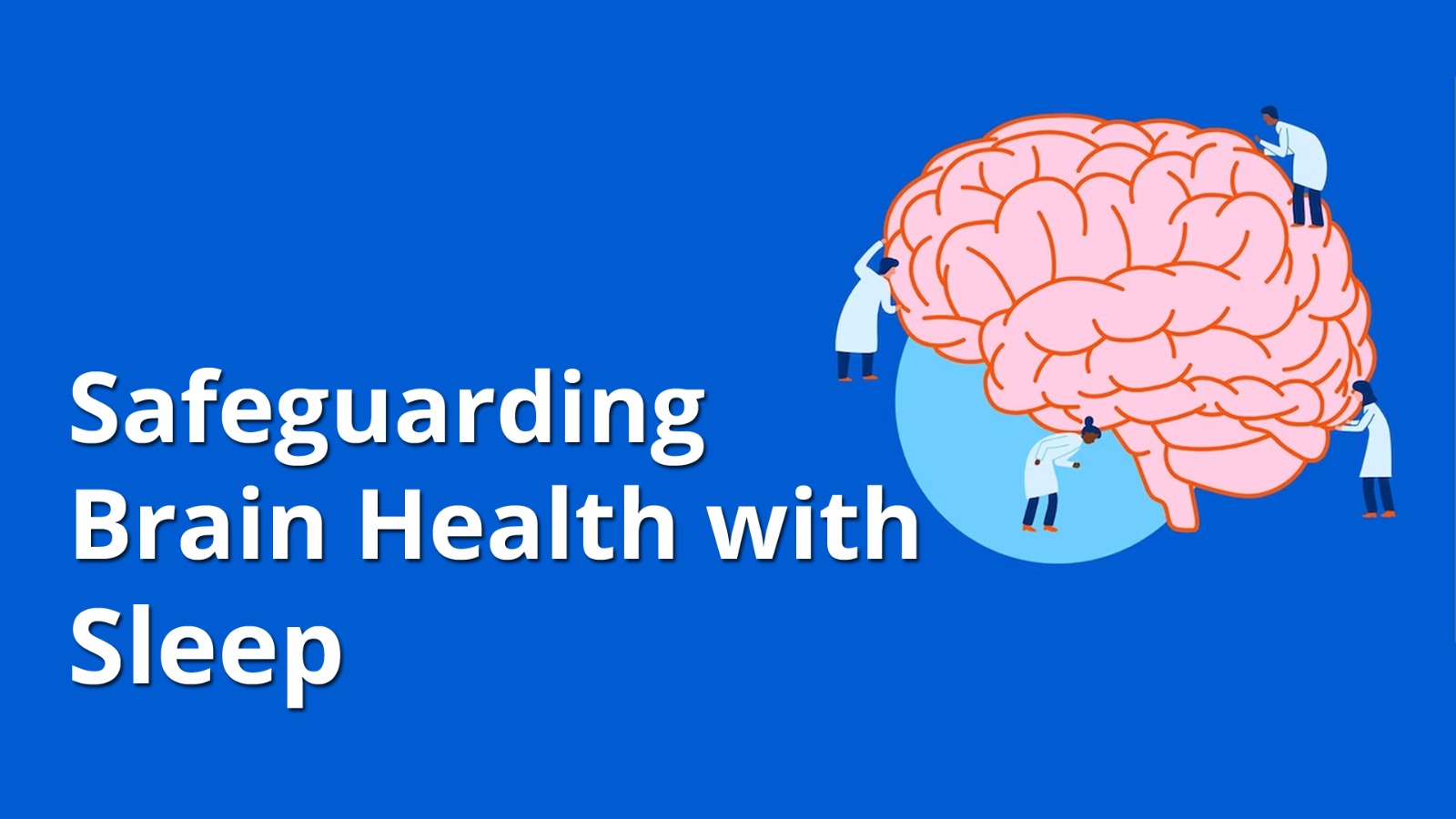An Adequate Amount of Sleep is Essential to Brain Health

Importance of Sleep to brain health
Introduction:
Sleep is a fundamental biological function that is essential for the well-being and optimal functioning of the human body. While we sleep, our body and brain engage in a complex series of processes that are crucial for physical and mental health. Among these processes, the restoration and maintenance of brain health are paramount. According to the Best General Physician in Hyderabad, said numerous scientific studies have emphasized the importance of sufficient sleep duration for overall brain health, with most experts recommending over 7 hours of sleep per night for adults. In this article, we will explore the critical role of sleep in brain health, the consequences of sleep deprivation, and practical tips to ensure that we get adequate sleep to support our cognitive functions.
The Role of Sleep in Brain Health:
Sleep plays a multifaceted and crucial role in brain health. It is not merely a period of rest and inactivity; instead, it is a dynamic process during which the brain undergoes complex activities that are vital for cognitive functioning, emotional well-being, and overall brain health. Let’s delve into the various aspects of the role of sleep in brain health in detail:
- Memory Consolidation: One of the primary functions of sleep is memory consolidation. Memory consolidation refers to the process by which the brain stabilizes and strengthens newly formed memories, making them more resistant to forgetting. This process involves the transfer of information from short-term memory to long-term memory storage. During sleep, especially during the rapid eye movement (REM) and non-rapid eye movement (NREM) stages, the brain replays and reinforces neural connections formed during waking hours. This repetition and reactivation of neural pathways contribute to the consolidation of memories, enhancing our ability to recall and retrieve information later.
- Learning Enhancement: Sleep not only consolidates memories but also aids in the process of learning. Studies have shown that individuals who get sufficient sleep after learning new information demonstrate better retention and recall of that information compared to those who experience sleep deprivation. Sleep seems to facilitate the integration of new information with existing knowledge, fostering a deeper understanding of the subject matter.
- Emotional Regulation: Adequate sleep plays a significant role in emotional regulation. During REM sleep, the brain processes and regulates emotions, helping individuals adapt to stressful or emotionally charged experiences. Sufficient sleep supports the optimal functioning of the prefrontal cortex, the brain region responsible for rational decision-making and emotional control. When well-rested, individuals are better equipped to handle emotional challenges and maintain a more balanced mood.
- Neural Repair and Maintenance: According to the best Neurologist in Kukatpally, Sleep provides an opportunity for the brain to engage in essential repair and maintenance processes. During sleep, the glymphatic system, a waste-clearance system in the brain, becomes highly active, clearing out metabolic waste products that accumulate during waking hours. This waste clearance process is critical as the buildup of toxins, such as beta-amyloid, is associated with neurodegenerative diseases like Alzheimer’s. Additionally, sleep allows the brain to replenish energy stores, repair damaged neurons, and strengthen synaptic connections, promoting overall neural health and longevity.
- Brain Plasticity: Brain plasticity, also known as neuroplasticity, refers to the brain’s ability to adapt and reorganize itself in response to experiences and learning. Sleep plays a role in promoting brain plasticity by supporting the formation of new synapses and facilitating the pruning of unnecessary or weak connections. This process is vital for memory formation, skill learning, and recovery from brain injuries.
- Cognitive Performance: Optimal cognitive performance relies on sufficient and restorative sleep. Sleep-deprived individuals often experience reduced attention, concentration, and problem-solving abilities. Decision-making can also be compromised, leading to errors in judgment. Conversely, a well-rested brain is more alert, focused, and capable of performing complex cognitive tasks with greater accuracy and efficiency.
- Creativity and Insight: Sleep has been linked to enhanced creativity and insight. During sleep, the brain engages in a process called memory reactivation, where it reviews and strengthens associations between seemingly unrelated pieces of information. This can lead to the formation of novel connections and creative insights, which may not have been apparent during waking hours.
- Hormonal Regulation: Sleep plays a crucial role in the regulation of various hormones in the body, including those that impact brain health. For example, the sleep hormone melatonin is essential for maintaining the sleep-wake cycle, and disruptions in its production can lead to sleep difficulties. Additionally, sleep influences the balance of hormones related to appetite and metabolism, affecting overall physical and cognitive health.
The Consequences of Sleep Deprivation on Brain Health as per the Neurologist in KPHB:
Unfortunately, in today’s fast-paced world, sleep is often sacrificed in favour of work, social activities, or entertainment. Chronic sleep deprivation, defined as consistently getting less sleep than the recommended amount, can have detrimental effects on brain health and overall well-being.
- Cognitive Impairment: Prolonged sleep deprivation leads to impaired cognitive function. Memory, attention, concentration, and decision-making abilities are significantly compromised, affecting academic and professional performance.
- Emotional Disturbances: Lack of sleep can result in heightened emotional reactivity and an increased risk of mood disorders, such as depression and anxiety. Mental health conditions may also be exacerbated by it.
- Reduced Immune Function: Sleep deprivation weakens the immune system, making individuals more susceptible to infections and illnesses.
- Increased Risk of Neurological Disorders: Studies have shown that chronic sleep deprivation is associated with an increased risk of developing neurodegenerative disorders like Alzheimer’s disease and Parkinson’s disease.
- Impaired Motor Skills: Sleep deprivation can impair motor skills and coordination, leading to an increased risk of accidents and injuries.
Practical Tips for Getting Over 7 Hours of Sleep:
Given the importance of sleep for brain health, it is essential to prioritize healthy sleep habits in our daily lives. Here are some practical tips to help ensure that you get over 7 hours of quality sleep each night:
- Sleep Consistently: Every day, even on the weekends, try to wake up and go to bed at the same time. This helps regulate your body’s internal clock and improves the quality of your sleep.
- Create a Relaxing Bedtime Routine: Engage in calming activities before bedtime, such as reading a book, taking a warm bath, or practising relaxation exercises. Avoid stimulating activities and electronic devices that emit blue light, as they can interfere with your ability to fall asleep.
- Set up a sleep-friendly environment: Make sure your bedroom is conducive to restful sleep. Keep it cool, shady, & calm, and instil in a comfy mattress & pillows.
- Limit Caffeine and Alcohol Intake: Reduce your consumption of caffeine and alcohol, especially in the hours leading up to bedtime. These implications can disrupt sleep habits and lower sleep rate.
- Get Regular Exercise: Regular physical activity can improve sleep quality, but try to avoid vigorous exercise close to bedtime, as it may make falling asleep more difficult.
- Manage Stress: Practice stress-reduction techniques, such as meditation, deep breathing, or yoga, to help calm your mind before bedtime.
- Avoid Heavy Meals Before Bed: Eating large, heavy meals right before bedtime can disrupt your sleep. Opt for a light snack if you are hungry before sleeping.
- Limit Screen Time: Minimize screen time before bed, especially from electronic devices like smartphones and computers. The blue light radiated by these gadgets can hinder with the production of the sleep hormone melatonin.
Conclusion:
Sleep is a critical factor in maintaining overall brain health. According to the Best Neurologist in Kachiguda, the brain’s complex activities during sleep contribute to memory consolidation, emotional regulation, and cognitive functioning. Consistently getting over 7 hours of quality sleep is essential for optimal brain health and well-being. On the other hand, chronic sleep deprivation can have severe consequences, including cognitive impairment, emotional disturbances, and an increased risk of neurological disorders. By prioritizing healthy sleep habits and adopting practical tips for better sleep, we can support our brain’s functioning, enhance our cognitive abilities and lead healthier and more fulfilling lives. Remember, a well-rested brain is a healthy brain.
.
.
.
.
.
For more details:
📞:: 733 733 6600 | 040 4345 4345
🌐:: https://prathimahospitals.com/book-appointment/






Warning: Undefined variable $req in /home/u885608126/domains/prathimahospitals.com/public_html/wp-content/themes/prathimahospitals/functions.php on line 294
Warning: Undefined variable $commenter in /home/u885608126/domains/prathimahospitals.com/public_html/wp-content/themes/prathimahospitals/functions.php on line 295
Warning: Trying to access array offset on value of type null in /home/u885608126/domains/prathimahospitals.com/public_html/wp-content/themes/prathimahospitals/functions.php on line 295
Warning: Undefined variable $aria_req in /home/u885608126/domains/prathimahospitals.com/public_html/wp-content/themes/prathimahospitals/functions.php on line 295
Warning: Undefined variable $req in /home/u885608126/domains/prathimahospitals.com/public_html/wp-content/themes/prathimahospitals/functions.php on line 298
Warning: Undefined variable $commenter in /home/u885608126/domains/prathimahospitals.com/public_html/wp-content/themes/prathimahospitals/functions.php on line 299
Warning: Trying to access array offset on value of type null in /home/u885608126/domains/prathimahospitals.com/public_html/wp-content/themes/prathimahospitals/functions.php on line 299
Warning: Undefined variable $aria_req in /home/u885608126/domains/prathimahospitals.com/public_html/wp-content/themes/prathimahospitals/functions.php on line 300
Warning: Undefined variable $commenter in /home/u885608126/domains/prathimahospitals.com/public_html/wp-content/themes/prathimahospitals/functions.php on line 303
Warning: Trying to access array offset on value of type null in /home/u885608126/domains/prathimahospitals.com/public_html/wp-content/themes/prathimahospitals/functions.php on line 303